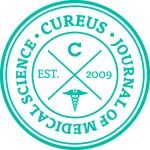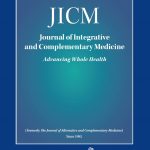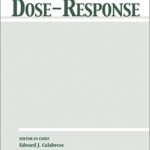Érika Cristina Ferreira, Larissa Ciupa, Angela Rigo Portocarrero, Camila Fernanda Brustolin, Paula Fernanda Massini, Denise Lessa Aleixo, Silvana Marques de Araújo
Phosphorus protects cardiac tissue by modifying the immune response in rats infected by Trypanosoma cruzi
Cytokine, 2018, 2, 102-106

Aim: This study evaluates and correlates the number of myocarditis focuses and production of cytokines in Rattus norvegicus (Wistar lineage), experimentally infected with T. Cruzi and treated with Phosphorus. Methods: In two blind, controlled and randomized trials, 53 45-day-old, male animals were allocated into groups Control (n = 24): Control group infected and treated with 7% hydroalcoholic solution, the preparation vehicle of the test medication; and Phosphorus (n = 24 on days 0, 5, 10 and 24 after infection): group infected and treated with Phosphorus 13cH, diluted 10−26 and dynamized (test medication). The animals were inoculated intraperitoneally with 5 × 106 blood trypomastigotes of T. cruzi-Y strain. The medication was administered overnight (16 consecutive hours), diluted in water (1 mL/100 mL) in amber water bottles. The animals were treated 2 days before and 2, 4, and 6 days after infection. Enumeration of inflammatory foci in cardiac tissue (Hematoxylin-Eosin) and dosage of cytokines TNF-α and IFN-γ in the serum were performed on days 0, 5, 10 and 24 after infection, using three animals/group. Mann-Whitney, Friedman ANOVA, Spearman correlation (p < 0.05), and Statistica Single User Software version 13.2 were used for data analysis. Results: The animals treated with Phosphorus 13cH had high concentration of INF-ɣ on the 5th day of infection with significant decrease on the 10th and 24th days (p < 0.05), and high concentration of TNF-α on the 5th and 10th days of infection with decrease on the 24th day (p < 0.05). The treatment with Phosphorus caused a significant increase of INF-ɣ and TNF-α on the 5th day of infection compared with the Control (p < 0.05), with reestablishment on the 24th day, as well as in the Control group. The group treated with Phosphorus had 52.5% less number of myocarditis focuses in heart than Control group (p < 0.05) on the 10th day of infection. The significant increase in cytokines on the5th day of infection in the Phosphorus group is related to a significant decrease in the number of inflammatory foci in cardiac tissue on the 10th day of infection in this group. Discussion and conclusion: Treatment with Phosphorus 13cH promotes beneficial effects in T. cruzi infection in Wistar rats by modulating the secretion of IFN-γ and TNF-α with decreased inflammation in cardiac tissue. These results reinforce the importance of considering the use of homeopathy for establishing new therapeutic approaches in the management of patients with Chagas disease.








Lascia un commento
Devi essere connesso per inviare un commento.